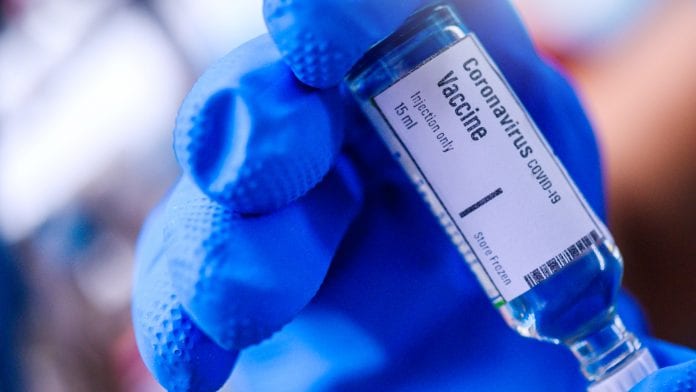
Kate Bingham, Chair of the UK Vaccine Taskforce, discusses the three goals of the taskforce.
The UK Vaccine Taskforce has three key goals: to secure access to vaccines that can help protect the UK population; to ensure that any successful vaccines are distributed internationally; and to ensure that we are better prepared for another pandemic.
We don’t yet know whether or not any vaccine is going to work, so we have announced four classes of vaccine. Oxford University has partnered with AstraZeneca to develop a vaccine based on the adenovirus vector; BioNTech and Pfizer are working on an mRNA vaccine, and we have provided additional funding to Imperial College London to develop their self-amplifying RNA vaccine. Valneva is working on a whole inactivated virus vaccine; and GlaxoSmithKline and Sanofi Pasteur are developing an adjuvanted protein vaccine. We have also acquired a neutralising antibody cocktail from AstraZeneca, which can be used for therapeutic use and as short-term prophylactic cover for patients who aren’t able to receive vaccines.
We may well need different vaccines for different patient cohorts. The Joint Committee on Vaccinations and Immunisation (JCVI) provided initial advice on target patient populations, which include anybody over the age of 50; anybody between the ages of 18 and 50 who has comorbidities such as type 2 diabetes or heart disease; any ethnic minorities – because they have been disproportionately affected by COVID-19, we don’t yet know why – and frontline workers. We are building target product profiles of the different vaccines in order to brief the JCVI as much as possible ahead of the clinical data, so they can have some early idea of what to expect.
Collaboration between the public and private sectors is very important. We first identified the virus in January this year; and we now have three companies which have started large Phase 3 efficacy studies in July, with no shortcuts in safety testing. Everything has been compressed, because money has been available to accelerate all the different aspects of drug development and manufacturing: that could not have been done without academia, small companies, large companies and governments, all working incredibly well together.
The issue of misinformation has been a concern. Some people think this has been done so quickly that there must have been shortcuts; to which I would say: there are no shortcuts in the safety standards of vaccine development. Then there are the anti-vaxxers who will just keep banging on the drum to say they don’t want to be vaccinated, which is very damaging. The fraudulent set of claims regarding the measles, mumps and rubella (MMR) vaccine has led to almost a doubling of cases of measles and mumps; measles can cause meningitis as a complication, and mumps can cause hearing loss. Those are not good things. By not vaccinating you are putting at risk other people who can’t receive vaccines; not only is it bad for you, but it is also bad for the population. Governments worldwide need to share the data to show that we are not putting something secret into people, that this is something which has been properly robustly tested in very large clinical studies.
We have launched a citizens’ registry, acting as a call to arms for people to join in with clinical trials in the UK. One of the challenges to getting these vaccines approved is that we have to be able to run these studies very quickly. We have also put in place now this NHS website, www.nhs.uk/coronavirus, which allows any member of the public to sign up and register interest in learning more about clinical trials. If we can get a big registry of people who are willing to be contacted to discuss participation, that gives us a boost in getting those trials set up quickly.
Kate Bingham
Chair
UK Vaccine Taskforce
This article is from issue 14 of Health Europa. Click here to get your free subscription today.









